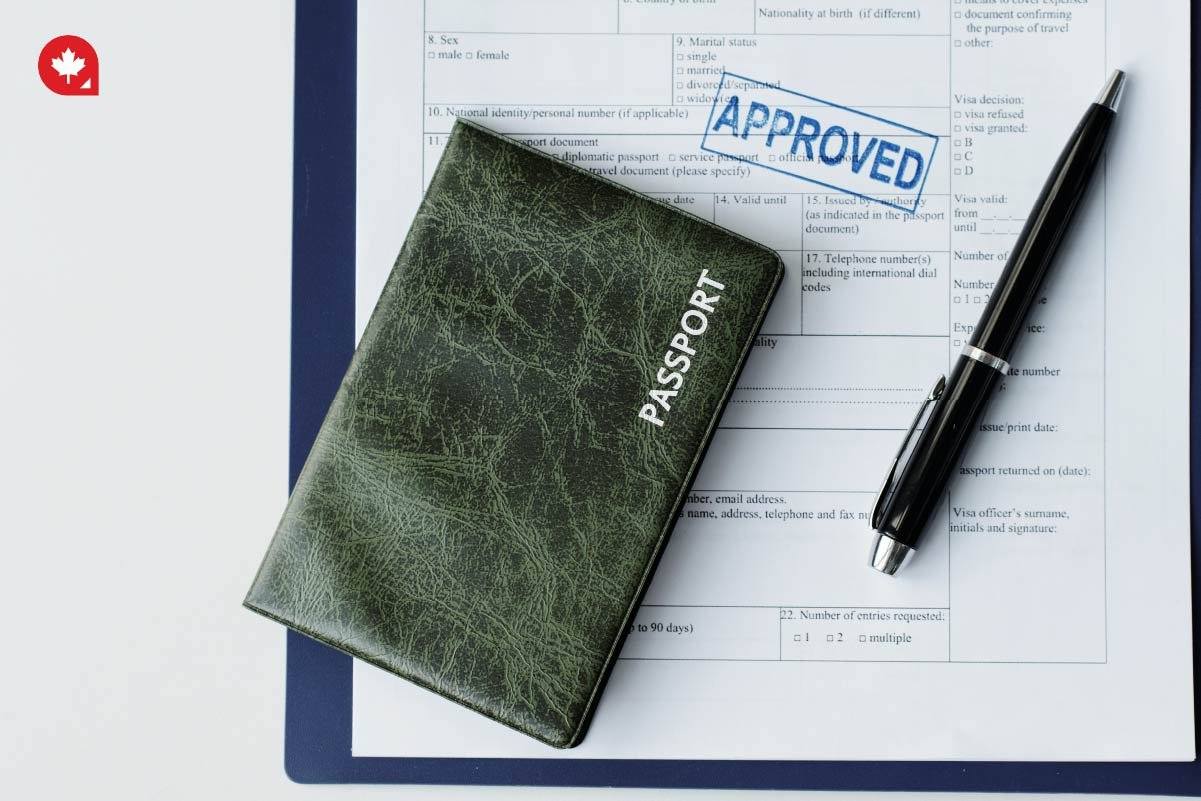Welcome aboard on your journey to understanding how to immigrate to Canada. This North American country is renowned for its high standard of living, robust healthcare system, and a vibrant, multicultural society. The country's immigration system is complex but well-structured, offering multiple pathways for potential immigrants. This guide will walk you through the process, from selecting the right immigration program to understanding the eligibility requirements, gathering your documentation, and finally submitting your application.
Before you can understand how to immigrate to Canada, it will be beneficial to comprehend the country's immigration system. The Immigration, Refugees and Citizenship Canada (IRCC) are responsible for handling all immigration matters. They offer an online platform, IRCC login, for potential immigrants to access immigration services. The system promotes economic prosperity, reunites families, and provides refuge to those in need.
The Canadian immigration system offers various programs such as the Canada Express Entry, Provincial Nominee Programs, Family Sponsorship in Canada, and several pilot programs. Each program has its unique set of requirements and processes. Therefore, it's crucial to understand each program in depth before deciding which one suits your circumstances best.
Step 1: Choose Your Immigration Program

Canada Express Entry
The Canada Express Entry system is one of the most popular immigration programs. It is an online system that manages applications for permanent residence from skilled workers in as little as six months. Applicants IRCC login on to the Express Entry online portal and submit details like their:
- Age
- Marital Status
- Education
- Work Experience
- Language Ability, and
- Connections to Canada
The system uses a Comprehensive Ranking System to rank the applicants based on these factors to produce a CRS score. All CRS scores then enter the Express Entry pool, and an Express Entry draw occurs every two weeks. The highest-ranking candidates receive an Invitation to Apply (ITA) for permanent residence. You can hugely benefit from using a CRS calculator to determine your CRS score.
A CRS calculator will evaluate your credentials and determine how eligible you are for the Express Entry System. However, it is important to note that a CRS calculator score may differ from the IRCC's official CRS score.
Federal Skilled Worker Program
The Federal Skilled Worker Program (FSWP) is part of the Express Entry system. It targets skilled workers with foreign work experience deemed likely to establish in Canada economically. Eligibility for the FSWP is based on six selection factors: language skills, education, work experience, age, arranged employment in Canada, and adaptability.
Federal Skilled Trades Program
The Federal Skilled Trades Program (FSTP) is another excellent option under the Express Entry system. It is for skilled workers who want to become permanent residents based on being qualified in a skilled trade. The FSTP requirements include having at least two years of full-time work experience in a skilled trade within the five years before you apply, meeting the job requirements for that skilled trade as set by the National Occupational Classification, and having a valid job offer of full-time employment for a total period of at least one year or a certificate of qualification in that skilled trade issued by a Canadian provincial or territorial authority.
Canadian Experience Class
The Canadian Experience Class (CEC) is another pathway under the Express Entry system. It targets individuals who have already been working in Canada and wish to become permanent residents. The key advantage of the CEC is that it recognizes the value of the work experience gained in Canada. To be eligible, you must have at least one year of skilled work experience in Canada, meet the required language levels needed for your job in English or French, and plan to live and work outside Quebec.
Provincial Nominee Programs
If you're looking at how to immigrate to Canada, another pathway is through the Provincial Nominee Programs (PNPs). PNPs allow Canadian provinces and territories to nominate individuals who wish to immigrate to Canada and are interested in settling in a particular province. Each PNP has criteria and streams, such as those for workers, students, or entrepreneurs. You can apply to a PNP directly to the province or via the Express Entry IRCC login. If you receive a provincial nomination, you can receive up to 600 points to your CRS score, effectively guaranteeing an ITA.
Learn more about Canada's Provincial Nominee Programs.
Family Sponsorship in Canada
Family reunification is a critical component of Canada's immigration policy. The Family Sponsorship Program allows Canadian citizens and permanent residents to sponsor their spouse, common-law partner, dependent children, parents, or grandparents for permanent residence. The sponsor must meet specific income requirements and agree to support the sponsored family member for a designated period financially.
Learn more about Family sponsorship in Canada.
Canada's Pilot Programs
Canada's immigration system also includes several pilot programs to address the country's specific economic and demographic needs.
Atlantic Immigration Pilot Program
The Atlantic Immigration Pilot Program (AIPP) is a partnership between the Government of Canada and the four Atlantic provinces: New Brunswick, Newfoundland and Labrador, Nova Scotia, and Prince Edward Island. The program aims to attract and retain skilled immigrants in these provinces. To apply for the AIPP, you must have a job offer from an employer in one of the Atlantic provinces and meet other eligibility criteria.
Rural and Northern Immigration Pilot (RNIP)
The RNIP is a community-driven program designed to attract foreign workers to rural and northern communities in Canada. To be eligible for the RNIP, you must have a recommendation from one of the participating communities, a job offer from an employer, and meet other federal and community requirements.
Agri-Food Pilot
The Agri-Food Pilot is designed to help address the labour needs of the Canadian agri-food sector. The pilot provides a pathway to permanent residence for experienced, non-seasonal workers in specific industries and occupations.
Home Child Care Provider Pilot & Home Support Worker Pilot
The Home Child Care Provider and Home Support Worker pilots provide pathways to Canadian permanent residence for caregivers. To be eligible, you must have a job offer in Canada and meet the requirements of language, education, and work experience.
From Temporary Resident (TR) to Permanent Resident (PR): The Process
You also have the option to transition from being a Temporary Resident (TR) to a Permanent Resident (PR) in Canada. Canada's TR to PR pathway is a temporary public policy pathway that allows certain temporary residents currently working in Canada and their families to apply for permanent residence for a limited time. The program was introduced via special public policies and aimed to grant temporary workers and international graduates permanent status with the sought-after skills and experience needed to accelerate Canada's economic recovery following the COVID-19 pandemic.
To be eligible for the TR to PR pathway, applicants must meet certain requirements, including having at least one year of Canadian work experience, specifically in health care or other pre-approved essential occupations, or being a recent graduate from a Canadian post-secondary institution. Applicants must also have valid status in Canada, a minimum language level of CLB 4 in each band, and a plan to live outside of Quebec.
Learn more about how to turn temporary residency into permanent residency in Canada.
Canada Work Permit
A Canada Work Permit allows you to live and work in Canada for a specific period. There are different types of work permits, including open work permits and employer-specific work permits. To apply, you must establish that you meet the requirements, provide the necessary documents, and pay the application fees. Here's a breakdown of how to get a Canada work permit.
Step 2: Ensure Your Eligibility
After choosing the suitable immigration program, the next step is to ensure your eligibility. Each immigration program has specific eligibility criteria, including language proficiency, work experience, education, and financial stability. Besides, you must also meet the general admissibility requirements to Canada, which include being in good health, having no criminal record, and not posing a risk to Canada's security. One thing you have to ensure is that you're admissible to Canada. Several factors can make you inadmissible to Canada. Learn more about these factors.
Step 3: Gather Your Documentation
Remember, your journey to immigrate to Canada begins with a single step: assembling the right documents. This meticulous process may seem daunting, but it's integral to your journey towards a new and promising life in Canada.
Each document acts as a stepping stone on your path, be it your passport that testifies to your nationality or your proof of work experience and educational credentials that illuminate your skills and capabilities. Your language test results mirror your ability to integrate into the Canadian community, while police certificates ensure you're a law-abiding citizen. It is paramount that every piece of information you provide is accurate and complete.
Any discrepancies could cause unnecessary delays or result in the rejection of your application. But don't let this intimidate you. Think of this process as laying down the foundation for your future residence. Every brick and document is significant in constructing a stable future for you in Canada. So embrace this process, which is the stepping stone to achieving your goal of immigrating to Canada. Learn more about what documents you need.
Step 4: Start Your Application Process

You can begin your application process once you have gathered all the necessary documents. Most applications can be made online. Fill out the forms correctly and submit all the required documents. Also, you'll need to pay the applicable fees, including processing fees, right of permanent residence fees, and biometrics fees. Learn more about Canadian immigration processing fees.
After You Apply
After submitting your application, you must wait for it to be processed. The length of IRCC processing times can vary considerably, influenced largely by the specifics of your chosen program and the sheer volume of applications received in a given period. This period, often awash with anticipation, demands your proactive involvement in ensuring that your contact information is kept current, accurate and accessible.
This is because there could be instances where the IRCC needs to contact you for further information or to provide updates on your application status. It is your responsibility as an applicant to facilitate this communication channel effectively, thus preventing any unnecessary delays or complications in your journey towards securing your immigration status. Your understanding and cooperation regarding IRCC processing times and procedures are appreciated and integral to the overall process.
Learn more about IRCC processing times.
Living in Canada: 5 Things to Expect
Once your application is successful and you move to Canada, you should expect a few things.
Linguistic Diversity
You can expect to encounter much linguistic diversity in Canada. As one of the country's two official languages, English is widely spoken. However, French is also commonly used, primarily in the province of Quebec and parts of New Brunswick. Therefore, it's beneficial to be versed in both languages. This not only helps in day-to-day interactions but also enhances professional opportunities. Learn more about Canada's languages.
Healthcare
Canada's healthcare system is publicly funded, and most health services are free to residents. This includes visits to doctors, specialists, and hospital care. However, prescription medications and dental care are not typically covered. Despite this, the robustness and accessibility of the healthcare system are among the country's most admired features. Find out if you are eligible for Canada's public healthcare system.
Education
The Canadian education system is recognized globally for its high standards. Public education is free until the end of high school, and the country is home to some of the world's top universities. Immigrants can expect their children to receive a high-quality education, contributing to their future success. Learn more about Canada's world-class education.
Weather
Canada's weather is characterized by seasons: winter, spring, summer, and fall. The climate can vary greatly depending on the region, with mild winters and hot summers in some areas and harsh winters and cool summers in others. Adapting to the weather can be a challenge for newcomers, but it also offers a variety of recreational opportunities. Learn more about the outdoor activities you can enjoy in Canada.
People
Canadians are known for their politeness and welcoming nature. Canadians generally embrace diversity and make newcomers feel at home regardless of origin. This culture of acceptance and friendliness makes Canada a desirable destination for immigrants. Learn more about the people of Canada.
FAQ
What Questions Are Asked During the Interview Process When Entering Canada as an Immigrant?
The officer will ask questions similar to those on the immigrant application form, including questions about your family, criminal history, length of stay, finances, health, and previous visits to Canada. They may also ask to see your declaration card and inspect your luggage.
Should I Look Out For Any Canadian Immigration Scams?
Yes, Canada has immigration scams. Scammers may pose as government officials on the phone, saying that you've done something wrong or owe fees and threatening you by saying that if you don't pay them right away, you will lose your immigration status or be deported. Many commercial or private websites offer immigration or citizenship services; some offer false guarantees to take your money or steal your private information. IRCC notes that scammers "often give a fake name and agent number to appear legitimate" but urges that these calls are always a scam.
To avoid getting scammed, it is important to do a quick background check on any new company you apply for and learn more about using a representative or consultant to help you with your application. The Canadian government has also warned about immigration fraud and provided information on how to protect yourself from it. Learn more about Canadian immigration scams.
How to Move to Canada the Right Way

Immigrating to Canada is a process that requires careful planning and understanding of the different immigration programs. It's essential to choose the right program that fits your situation, ensure you meet the eligibility requirements, gather the necessary documentation, and submit a complete and accurate application.



